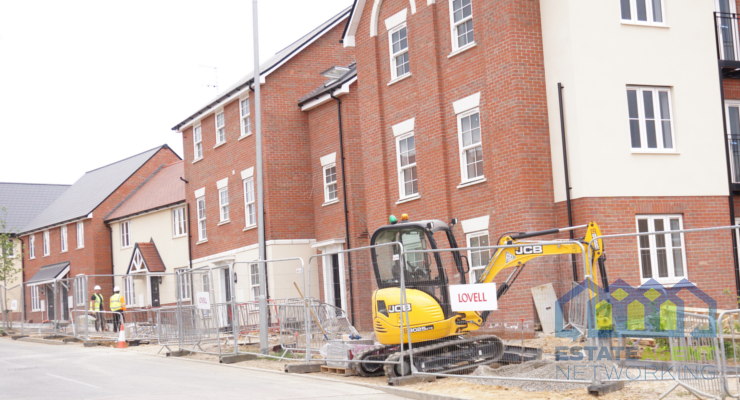Interview: Dr Roberta Blackman-Woods – Shadow Minister for Housing & Planning.
Following the vote passing the “Housing and Planning Bill”, by 309 to 216 we thought we would get the feedback from some MP’s from around the country. The ones we approached on Twitter included Sadiq Khan (MP for Tooting) and Zac Goldsmith, (MP for Richmond Park & North Kingston) though responsive to us and open to sharing her opinions was Dr Roberta Blackman-Woods who is Shadow Minister for Housing and Planning and MP for City of Durham. Below are our questions and her answers in full re #HousingBill 2016 vote:
What are your thoughts to the recent #HousingBill results, namely the vote not to set minimum living standards on rental properties?
I’m really disappointed that the Tories didn’t support the amendment – but it doesn’t surprise me; they recently talked out a Private Members Bill with the same aim too.
A quarter of a million properties in the Private Rented Sector are estimated to have a category 1 hazard according to Shelter. In Social Housing, there is already legislation in place and minimum safety standards, but the government has failed to legislate to ensure that private rented sector properties meet the same standards. While local councils do have powers to tackle the worst instances of these concerns, environmental health teams often lack resources to carry out proactive inspections and enforcement work.
While it is true that the majority of properties are safe and fit to live in, it is unacceptable that in 2016 we still have people living in properties unfit for human habitation up and down the country.
Is there a problem with UK housing? Do you feel that there is already an alarming shortage?
Recent figures from the Joseph Rowntree Foundation show that we are not building enough homes. Current rates of housebuilding in England are running at around half the level needed to meet existing and anticipated demand for new homes. This shortfall in supply is one factor in rising house prices. The private rented sector has grown mainly through the conversion of existing properties from other tenures rather than by new building. We need to deliver an average of 240,000-245,000 new homes per annum in England, of which 78,000 must be in the social sector to meet need. At a minimum, 200,000 homes per year are required to prevent a worsening housing crisis.
Huge companies are holding back from building residential property on brownfield sites, should this be looked in to further to release building land?
The Housing and Planning Bill has proposed a major change to the planning system of ‘permission in principle’, which would grant automatic planning permission for any site including brownfield designated in a planning document. This is a knee jerk reaction to low levels of housebuilding and I am really concerned that this would risk overriding local communities’ say on developments in their areas.
We believe that “permission in principle” should be limited to housing on brownfield land in England. The Government’s productivity plan indicated that the proposals for permission in principle would relate specifically to brownfield land, but the Housing and Planning Bill currently going through Parliament places no such limitations upon it.
Labour thinks that a much better way to develop brownfield sites is a return to the brownfield first policy which prioritises the building on brownfield land without bypassing local communities’ input into the planning process.
I remember the days when a home was a home, now it seems they are investments – Do you agree?
Labour fully recognises the need to deliver at least 200,000 homes per year in order to tackle the housing crisis. It is however important that we are building not just houses, but the right kind of houses across a range of tenures and in communities that people want to live in. This means building homes which are supported by the necessary infrastructure, including great transport links, schools, shops, leisure and access to a range of services. This sadly isn’t a priority for this government, and they voted against our amendment to the Housing and Planning bill which would have required new housing to be supported by the necessary infrastructure.
Social Media is a wonderful communication tool. How do you find it for communicating with your local community and building your relationship with them?
I agree, social media can be a great and effective tool for communicating with my constituents and the wider community. I receive messages asking for help on a range of issues through Facebook and Twitter, and equally I can keep my constituents up to date with what I’ve been up to through social media.
I think many people feel at home on these platforms, so it is important to me that I use it to communicate with those people. As well as Facebook and Twitter, I also have a website which has recently been revamped, and again this is a great way for me to keep in touch with the community; I use it to post blogs and articles and I have had some good feedback from constituents.
That said, some constituents still prefer a traditional letter or knock at the door to enable them to raise an issue or concern, and that works well for me too!
A big thank you to Dr Roberta Blackman-Woods for kindly responding to our request and answering our question so very quickly.
You can follow Dr Roberta Blackman-Woods via Twitter here: https://twitter.com/robertabwMP









